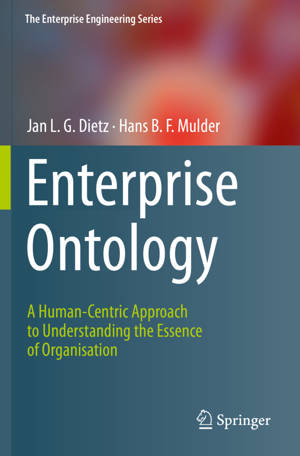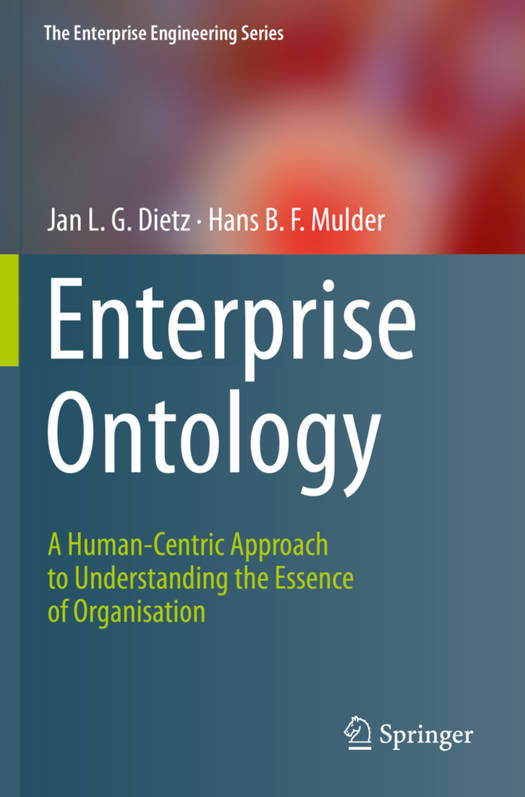
- Afhalen na 1 uur in een winkel met voorraad
- Gratis thuislevering in België vanaf € 30
- Ruim aanbod met 7 miljoen producten
- Afhalen na 1 uur in een winkel met voorraad
- Gratis thuislevering in België vanaf € 30
- Ruim aanbod met 7 miljoen producten
Zoeken
Enterprise Ontology
A Human-Centric Approach to Understanding the Essence of Organisation
Jan L G Dietz, Hans B F Mulder
€ 137,45
+ 274 punten
Uitvoering
Omschrijving
Enterprise ontology is one of the conceptual pillars of enterprise engineering, next to enterprise design and enterprise governance, together accomplishing the goals of intellectual manageability, organisational concinnity and social devotion. By revealing the essence of an enterprise's organisation, enterprise ontology addresses business processes, data and rules in a fundamental and truly integrated way. In addition, it provides deep insight into and broad overview over complex organisational transformations.
The book is divided into three parts. Part A is an introduction in enterprise engineering and enterprise ontology. Part B explores the theories underlying enterprise ontology, explaining the foundations of each theory, the elaborations in practical methods and techniques, and the relationships with other comparable approaches. Part C presents the practical application of the theories. It includes a comprehensive summary of the DEMO methodology and the DEMO specification language, as well as exercises and applications of DEMO in various business areas. It also features a chapter on combining DEMO with comparable approaches to modelling business processes, data and rules, to the benefit of the latter.
Discussing the theoretical foundations of enterprise ontology and its practical applications in equal measure, this book is the principal textbook in courses on enterprise engineering. Since it unites elements from management science and information systems engineering, it is also relevant to students and professionals in either field.
The book is divided into three parts. Part A is an introduction in enterprise engineering and enterprise ontology. Part B explores the theories underlying enterprise ontology, explaining the foundations of each theory, the elaborations in practical methods and techniques, and the relationships with other comparable approaches. Part C presents the practical application of the theories. It includes a comprehensive summary of the DEMO methodology and the DEMO specification language, as well as exercises and applications of DEMO in various business areas. It also features a chapter on combining DEMO with comparable approaches to modelling business processes, data and rules, to the benefit of the latter.
Discussing the theoretical foundations of enterprise ontology and its practical applications in equal measure, this book is the principal textbook in courses on enterprise engineering. Since it unites elements from management science and information systems engineering, it is also relevant to students and professionals in either field.
Specificaties
Betrokkenen
- Auteur(s):
- Uitgeverij:
Inhoud
- Aantal bladzijden:
- 465
- Taal:
- Engels
- Reeks:
Eigenschappen
- Productcode (EAN):
- 9783030388560
- Verschijningsdatum:
- 23/04/2021
- Uitvoering:
- Paperback
- Formaat:
- Trade paperback (VS)
- Afmetingen:
- 156 mm x 234 mm
- Gewicht:
- 680 g

Alleen bij Standaard Boekhandel
+ 274 punten op je klantenkaart van Standaard Boekhandel
Beoordelingen
We publiceren alleen reviews die voldoen aan de voorwaarden voor reviews. Bekijk onze voorwaarden voor reviews.











